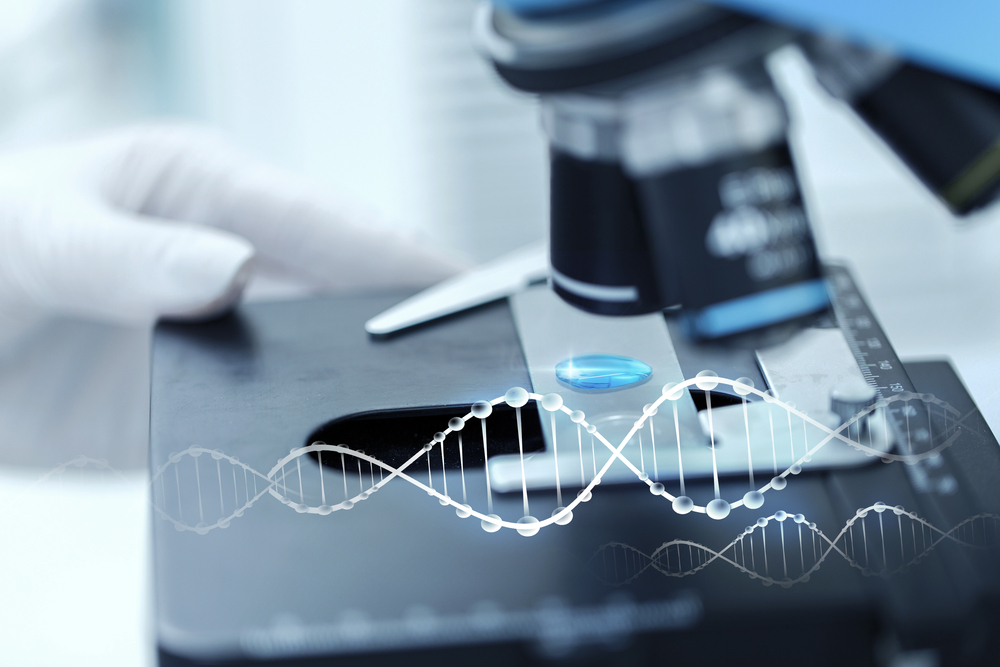Chip Technology Identifies Potential Combo Therapy for ALS in Study

Chip technology — much like an organ-on-a-chip that can simulate the workings of tissue or organs — was used to recreate amyotrophic lateral sclerosis (ALS), allowing researchers to identify two treatments for blood cancers — rapamycin plus bosutinib — as a possible ALS combination therapy.
The study, “Microphysiological 3D model of amyotrophic lateral sclerosis (ALS) from human iPS-derived muscle cells and optogenetic motor neurons,” was published in the journal Science Advances.
Only two treatments — riluzole (marketed as Rilutek, by Sanofi) and edaravone (marketed as Radicava, by MT Pharma America) — are FDA approved to help ease symptoms in ALS patients.
The search for new medicines requires intensive investigation, and a need for disease models that can go beyond the limitations of animal testing.
Organ-on-a-chip devices can help in overcoming these limitations. They consist of miniaturized devices with personalized designs containing small channels and chambers where cells are cultured to recreate organ functioning.
Once established, these chips can harbor different cell types and be used to study diseases, their mechanisms and potential treatments.
Researchers with the Massachusetts Institute of Technology (MIT) and Harvard University developed a 3D ALS-on-a-chip device containing motor neurons and muscle cells, the two main cell types affected in the disease.
Motor neurons were derived from human induced pluripotent stem cells (hiPS), a type of stem cell with the potential to differentiate into specialized cells in vitro, or in the lab. These cells were derived from a person with sporadic ALS, the disease’s most common form. As a result, the hiPS-derived motor neurons carried the disease.
“Important species differences between mice and humans likely contribute to the failure in clinical trials of drug candidates that have been identified via screening using an ALS mouse model,” the researchers wrote. “This highlights the importance of using cells that are derived from a human source.”
The team loaded the chip with healthy skeletal muscle cells and hiPS-derived, light-sensitive motor neurons (nerve cells). Light was used to induce muscle contraction and control neural activity on the device.
A similar device was loaded with healthy motor neurons, serving as a control for the experiment.
Compared to chips with healthy nerve cells, the ALS-on-a-chip demonstrated weaker and fewer muscle contractions, deteriorated motor neurons, and increased muscle cell death.
Researchers then tested two approved treatments — molecules both known for their neuroprotective potential — in the ALS-on-a-chip: rapamycin (a lymphoma therapy, marked as Sirolimus) and bosutinib (a leukemia treatment, marked as Bosulif). Used in combination, these medicines were seen to help recover muscle contraction generated by motor neuron activity, and to improve neuronal survival.
Each of these molecules have a limited ability to penetrate the blood-brain barrier (BBB), crucial in treating ALS. But, interestingly, the researchers saw this limitation can be overcome if the two molecules are combined — using a BBB-on-a-chip device. The greater ability of the combination to effectively reach the brain resulted from a reduction in the expression of P-glycoprotein, a cell membrane protein that acts to keep foreign substances out of the cells.
These results highlight the potential of organ-on-a-chip technologies as promising platforms for testing treatment candidates in ALS, according to a press release.
“Our model represents an important advance in the simulation of human physiological and pathological conditions associated with motor units and neuromuscular junctions, which is useful for investigating the mechanisms underlying ALS and for drug testing,” the researchers wrote.
Rapamycin is currently being tested in a Phase 2 clinical trial (NCT03359538) taking place in ALS patients in Italy; an open-label Phase 1 study (NCT02921477) looking at bosutinib in dementia patients may be taking place in California, but its status is unknown.






